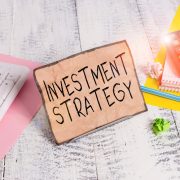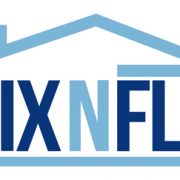Baby Boomers and Retirement – Is it Time to Diversify?
Considering Baby Boomers and Retirement
Baby boomers and retirement are a hot topic now that many baby boomers are in or nearing their retirement. Are you a baby boomer? That is, were you born between the years 1946 or so, and 1964? You should be thinking very hard about retirement. And indeed, you had quite a tailwind to help you out over the years: An unprecedented bull market starting in 1983, just as most of you were getting serious about investing in your 401(k)s, strong appreciation in home prices over the years, and a lot of years of much higher interest rates and dividends – and returns on investment – than we have now.
Well, it turns out, when it comes to baby boomers and retirement, the kids who were kids when The Who released The Kids are Alright are, indeed, doing all right. For the most part, anyway. Of those who are semi-retired or fully-retired already, 84 percent report that they are, indeed, prepared for retirement. Out of the set of all baby boomers, 71 percent are reporting that they are prepared for retirement.
That’s the result of a fairly recent (2012) survey by TD Ameritrade. The numbers have improved a little bit since then thanks to some significant price appreciation in the real estate market, where many baby boomers have a large fraction of their net worth.
Baby boomers have also benefitted from a broad bull market in both stocks and bonds – at least up to this point. With the Dow hitting a record close of 17,156.85 as I type this, and interest rates still near historic lows boomers seem to have received nearly every break in the book.
But that brings up something else in relation to baby boomers and retirement: Interest rates aren’t going to go much lower. The Federal Reserve is already promising a permissive monetary environment, which should help keep interest rates low. But at this time in your investment cycle, when you are soon to be converting your portfolio to from a value appreciation strategy to an income-producing strategy, low interest rates actually begin working against you, not for you. This is simply because every dollar you have in your retirement portfolio, on average, is generating less income.
Now may be the time to think about diversifying into some other asset classes – ones which are not tied to stock market or broader interest rate risk, for example, or which offer better prospects for income, capital growth, or safety.
That’s where self-direction comes in: By rolling assets in your IRA or qualified retirement plans over to a self-directed IRA, you can begin moving into some alternative asset classes that haven’t already experienced a huge run-up, and consequently may be less exposed to risk at this point.
Examples include:
- Rental real estate
- Commercial real estate
- House flipping projects
- Farms, ranches and racehorse breeding and training businesses
- Partnerships and LLCs
- Tax liens and certificates
- Hard money lending
- Private equity
- Venture capital
- Foreign currencies
- Foreign real estate
- Private placements
- Convertibles
- Restaurants and retail stores
- Hotels and motels
- Options and futures
- Commodities
- Non-traded REITs
- Oil and gas opportunities
- Precious metals and mining
- Coins and bullion
- Leveraged investments
And much more.
Not only are you able to diversify far beyond the basic mix of financial assets that investment companies typically offer, you may also be able to concentrate your assets in industries or market segments or services where you have a compelling competitive advantage. This may allow you to pursue investment opportunities far beyond what most people associate with retirement accounts. If you manage it well, you may be able to increase income, increase capital gains, reduce overall portfolio risk, or all three. Meanwhile, you can potentially lock in some of your hard-won gains over the years and protect them from interest rate, inflation or stock market risk
There are no guarantees, of course. But self-direction puts you in control of your own destiny, not some anonymous fund manager.
To find out more, call us today at 866-7500-IRA (472). Or visit us at www.AmericanIRA.com. We’ll be happy to send you one of our exclusive guides to self-directed retirement investing, free of charge.
Image by: presentermedia.com




